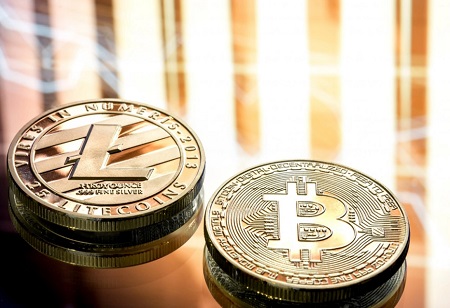Digital payment and cryptos set to be in focus during India's G20 presidency
By Consultants Review Team
 Detailed deliberations on new digital payment methods, including crypto assets and cryptocurrencies, are set to be a key part of the finance track agenda of the G20 when India assumes presidency of the grouping in December, two people aware of the development said.
Detailed deliberations on new digital payment methods, including crypto assets and cryptocurrencies, are set to be a key part of the finance track agenda of the G20 when India assumes presidency of the grouping in December, two people aware of the development said.
About 40 meetings are expected to be held under the finance track covering areas such as international financial architecture, financial sector reforms, financial inclusion, sustainable finance, infrastructure and climate financing, and tax matters, including regulations to check tax evasion by crypto assets, the people said, requesting anonymity.
These meetings will be part of a total of some 200 meetings at the ministerial, Sherpa, working group and engagement group levels that will be held in the run-up to the summit of the world’s 20 largest economies in New Delhi during September 9-10, 2023.
“The stage for deliberations is now set with two reputed international bodies – OECD and FSB – having submitted detailed reports on this matter,” one of them said. The Organisation for Economic Cooperation and Development (OECD) on October 10 presented a new transparency framework for crypto assets to the G20. The next day, the Financial Stability Board (FSB) released a proposed framework on international regulation of crypto asset activities.
“But the very cryptic nature makes them (cryptocurrencies) a convenient tool for drug trafficking, money laundering and terror funding. Members (of the G20) will certainly try to find effective, practical and transparent ways to deal with this menace,” he said.
Cryptocurrencies are unregulated in India and New Delhi has not yet taken any view on this issue as consultations are still on, the second person said. Replying to the opposition’s charge that the central government is giving a mixed signal on the issue of virtual digital assets (VDAs) and clarity is lacking, finance minister Nirmala Sitharaman told Lok Sabha on March 25: “I just want to say that there is no confusing signal. We are very clear that the consultation is going on whether we want to regulate it fully, or we want to regulate it to some extent, or we want to totally ban it. After the consultation is concluded, the result will come out.”
“Effective regulation of VDAs and crypto assets in India is possible only when we have some international regulations for them,” the second person said.
International collaboration is required “to prevent regulatory arbitrage” as cryptocurrencies are by definition borderless, junior finance minister Pankaj Chaudhary told Parliament on August 2. “Therefore, any policy framework on cryptocurrency can be effective only after significant international collaboration on evaluation of the risks and benefits and evolution of common taxonomy and standards.”
Threats related to new payment technologies such as cryptocurrencies, along with misuse of ICT (information and communications technology) and drones, were the focus areas of the special meeting of the UN Security Council’s Counter-Terrorism Committee (CTC) hosted by India on September 29.
Experts from the UN and the Financial Action Task Force (FATF) highlighted the need for countries to implement the so-called “travel rule” that requires crypto firms to collect and exchange personal data of all parties to transactions.
A declaration adopted at the meeting recognised FATF’s work on virtual assets and virtual assets service providers, and called for further steps to improve global implementation of counter-terrorist financing measures in the context of cryptocurrencies.
Besides the financial track, there will be more than 100 meetings on a range of subjects such as health, socioeconomic development, digital economy, trade, investment, environment, energy, anti-corruption, education and women’s empowerment. Meetings related to climate and environment will focus on Mission LiFE (Lifestyle For Environment).
There will also be seminars, conferences, academic interactions, workshops and side events during the one-year period, the people said. Ten engagement groups will hold even more meetings involving the private sector, civil society and think tanks. These will be on themes related to business, labour, science, and issues related to urban development, women and youth.
India will take over the G20 presidency from Indonesia on December 1, and will lead its affairs till November 2023. G20 is the premier forum for international economic cooperation. On December 1, 2021, India joined the G20 Troika along with Indonesia and Italy, representing the current, previous and incoming presidencies.
The members of G20 are Argentina, Australia, Brazil, Canada, China, France, Germany, India, Indonesia, Italy, Japan, South Korea, Mexico, Russia, Saudi Arabia, South Africa, Turkey, the UK, the US and the European Union. Spain is also invited as a permanent guest. India has included Bangladesh, Egypt, Mauritius, the Netherlands, Nigeria, Oman, Singapore, Spain and the United Arab Emirates as guest countries during its presidency.




